|
Unprecedented. It comes at you several times a week, jumping off the page or screen to inform you of yet another breach of normality. Maybe it’s like woke or cancelled or, from an earlier (and I’d argue more innocent) generation of repurposed language, far out. But the difference is, unprecedented is not repurposed. Its meaning is straightforward. It means what it always has. What’s novel here is what it’s referring to, all it encompasses: former presidents, and every aspect of the justice system in this country, including its forward march into the business of all matters medical, for which, I would guess, it has few or zero qualifications.
I am all for new ideas, approaches, and solutions, though generally new is not as convenient as ringing in the old and tried. What’s failed once doesn’t go away, it lies in wait for its opportune moment. And while I’m not so keen on clever new ways to twist and tangle the laws of this country, I’m reminded that something as seemingly immutable as law or ethical behavior, is actually subject to the same fluctuation as everything else. It can all be tweaked, stretched, litigated, seen through a different lens. There’s a reason Moses received the Ten Commandments on stone tablets when they could have arrived on papyrus. They could have been drawn in the sand. Or there might have been a voice from the sky, in keeping with oral tradition. But no. Stone. Good old enduring rock. That was the message: these rules are forever. Too bad there wasn’t a geologist in the house who could point to a lump of limestone and say, That used to be an ocean. Or a column of basalt and say, That used to be a rumbling volcano. Forget forever. Things change. One thing becomes another. Get used to it. And this is the lesson at the heart of unprecedented: newness, change, uncertainty, they’re a necessary part of our lives. Ask Darwin. He’ll tell you. Ask my friend who just fell in love with the right man this time, though and because “he wasn’t like any of the others.” We should go out and do something unprecedented every day. It takes courage to move off the seat we occupy so heavily, day after day, year after year. We fear the unknown, despite the fact that we’re walking right into it. In these unprecedented times, on a day when I’m willing to look at things from a different angle, I give thanks for the practice of living in limbo. Not this, not that, it’s a time that defies our constantly conceptualizing minds and their habit of constructing realities that suit us. Suit us, yet disappoint us over and over again as our plans for forever don’t stick. Unprecedented opens doors (and closes some too). Imagine walking out into the night and seeing the sky in its starry entirety instead of as a collection of named constellations. Imagine the whole without the distraction of what we are taught to see. It’s intimate, that kind of knowing. When we let go of the convenience of constructed realities and reach beyond them to a purer kind of understanding, that’s when we can appreciate the open opportunity of unprecedented.
1 Comment
I feel a desire to walk the streets of Kyiv at night. Photographs of the darkened city: a young boy playing the accordion on a street corner; a pianist performing in an underpass; a salsa class lit by the dancing light of cell phones; a woman in a high window holding a candle to the night. The images belie the suffering, of course. There’s an artistry, a beauty to the photographs. War is often made if not pretty, then rich in meaning, by a camera. This war seems unfounded and meaningless, yet in the darkness and the suffering there’s a comradery.
The darkness of Kyiv holds a lesson for our own country, our own country’s darkness. Some people carry lights out into it and others close the door and wait for the night to pass. All those hours inside and winter coming on. Fearful times for many and rumors spread, yet those in the streets enjoy a surprising fellowship. Who carries the lights outside? Who sits inside in the dark? Who shares the last stub of a candle? Who refuses the flame? As a country, I believe we are learning how to maneuver in this darkness. We have learned there’s room for our very different responses to darkness or difficult times. Here in Arizona it’s snowing and the darkness comes early, yet it’s interrupted by the lights city people believe will protect them from misfortune. Sometimes they blind us instead. The streets are lit up from without and within. I watch a man on the corner pull his wallet from his pocket and count his money. A family next door plays a board game until dinnertime. We cannot imagine telling stories by candlelight, or walking the dog by the light of its blinky collar. There’s a teaching quality to darkness. A beauty I hope we are able to relearn. Years ago I saw a movie called Lost in Translation, starring Bill Murray and Scarlett Johansson. I’m sure many of you have seen it too. I loved it. Recently, I read a book called Intimacies by Katie Kitamura, about an interpreter working for the International Criminal Court in The Hague. I liked that too and began to wonder why the fields of interpretation and translation feel so compelling to me, so hopeful. I guess the answer is obvious. These are professional attempts to leap the chasm between languages and, on a larger scale, cultures. Bill Murray and Scarlett Johansson have to leap the chasms of age, experience, and temperament, which they do with a fair measure of success. There’s the feeling that just enough conspires against them to make a complete understanding impossible. The message may be that a complete understanding is never possible, but Lost in Translation illustrates the very best we can do.
Kitamura’s protagonist’s concern is the accuracy of language and the fact that her words, her intonation, her interpretation can free a murderer or send an innocent man to the gallows. Her job involves spending time in close proximity to men of power—lawyers and dictators—whose actions past and present are the chasms she must negotiate, all without interjecting herself into the mix. In order to stay true to the story she’s conveying, in order to maintain the purity of intention and word, her judgments, opinions, and emotions have no place in her work. Yet how can words form on her lips without her own stamp on them? How can she do her work without risking the integrity of the work itself? Stay with me here while I make a comparison. A few days ago, the governor of Florida pulled what has been called a stunt, an accurate label for a reprehensible political move made at the expense of others. At first I considered it childish. What was childish about it was that children aren’t born with the capacity to think things through. They have to learn consequences. If I were a child psychologist I could tell you at what age that happens, but it’s surely long before the governor’s age at the present moment. Sending migrants off in planes to an island where they can’t escape unemployment because there are no jobs, is more than childish. It’s weak, ineffective, cruel, and an egocentric display well beyond that of a churlish child. And by the way, haven’t we had enough egocentric displays in the recent past? It’s showmanship, a stunt, a waste of taxpayers’ money that does nothing to solve a very real problem. The individuals who are now suffering at the hands of the governor of Florida are not just the face of this problem, they are the victims of it. Instability in South America and all over the globe is now a fact of life, like a warming climate, and in some cases due to a warming climate. We just want to work, say the duped and desperate migrants facing a confusing volley of questions. Where can we go and work? Here we are, post-ish pandemic and with a labor shortage. Shame on us for not seeing a solution on our doorstep. And shame on you, governor, for your one-man traveling circus. Don’t forget: to stand in front of a circus crowd and pull a stunt is the province of the professional clown. The governor of Florida no doubt intended to convey a message, a message that was, however, lost in translation. Instead of words, which are used by some as pawns, he put human lives on the chess board and played them to win. He would do better, this governor of Florida, to keep his large, foolish personality out of his work in order to demonstrate a purity of intention. If he wants to fix our immigration troubles, cruelty to a handful of non-English-speaking border-crossers does not translate. It’s impossible to read it as any kind of solution, and it creates an environment of mistrust which jeopardizes the integrity of the work ahead. The migrants, by the way, posed a problem for the people of the island because so few of the islanders spoke Spanish, and just as few of the migrants spoke English. But within hours, on that very small island, the problem had been solved. Several high school students from, let’s say, Mrs. Carpenter’s second period Spanish class, came to the rescue. They walked over to the gym where the new arrivals were being given food and something to drink. Buenos dίas, they said shyly, their voices warming up to the task. Podemos ayudarle? When it comes to current developments on an international scale, I turn to an unusual source for the most accurate expression of my sentiments: Winifred Banks. Let me explain. I was eleven years old when Disney’s greatest hit came to the screen. Mary Poppins descended on our circumscribed lives like the haint she really is, and she left behind not a trail of fairy dust, not a ghostly rattling of plates in the cupboard, but a warning for future generations: The dragon is growing restless.
The savvy Ms. Poppins, rather than sully her saint-like reputation, offered a warrior instead in the form of her employer, Mrs. Winifred Banks. Mrs. Banks was the mother of the children under Mary’s care, and there was a good reason she needed a nanny: She was not cut out for motherhood. She was busy doing other things. And the thing she was most busy doing was trying to move society along when it came to the rights of women. She was a suffragette, a member of the Votes For Women suffrage movement. In the movie, her catchiest number is the one that flew around inside my head this morning, like a rabid bat without an exit strategy. It took me awhile to figure out the source of the memorable words, but I was finally able to trace them to Winifred Banks. She starts up singing and marching around inside her home, a woman’s place after all, and here’s her message: We’re clearly soldiers in petticoats Dauntless crusaders for women’s votes Though we adore men individually We agree that as a group they’re rather stupid. Cast off the shackles of yesterday! Shoulder to shoulder into the fray! Our daughter's daughters will adore us And they'll sing in grateful chorus Well done sister suffragettes! From Kensington to Billingsgate one hears the restless cry! From every corner of the land womankind arise! Political equality and equal rights with men Take heart for Mrs. Pankhurst has been clapped in irons again! No more the meek and mild subservients we We're fighting for our rights militantly! Never you fear! But Mrs. Winifred Banks, I do fear. For one thing, your daughters’ daughters are old enough to vote, and do vote, but political and social equality for women is on a downward slide. The abortion issue in the United States is only that in name; more accurately, it’s an issue of women’s rights. The fact that a shocking number of women in these same United States are imprisoned for decades for the crime of not protecting their children well enough from an abusing male, while that male gets two years of jail time, that’s an issue of women’s rights. Women fired from the workplace for blowing the whistle on sexual harassment. Girls unable to go to school. Women prohibited from driving or appearing in public. This is a global issue. I could go on and on but it’s such a familiar story it takes on the trappings of every other cliché. The point is, sometimes it just gets to me. We aren’t invited to be equal. It’s as straightforward as that. We can’t dance unless we crash the party, and even then we’re often dancing alone. I think we compensate for this reality all the time. I know I do. I do it by not thinking about women in Afghanistan, women in Indiana, women in you-name-the-next-place, women in prison. I say I don’t have the bandwidth, but that’s a miserable excuse. The fact that women in the great republic of the United States of America were not even nominally created equal until the 19th Amendment was passed in 1920, speaks volumes. And that’s women of every race. I don’t believe the issue of racial inequality in our country overshadows the issue of women’s rights, but I do believe it’s the more potently categorized injustice at this moment. I believe both injustices spring from the same source, and the source is a kind of misogyny as far as misogyny always reflects a threatened and often self-loathing male mind. I may be getting into the weeds here, and I’ve strayed far from Winifred Banks, but after recently rupturing my Achilles tendon and literally exposing my Achilles heel, I see that heel, that vulnerability, to be an unwillingness to engage in difficult conversations. Let’s change that. Bring it on, I say. I’m tired of fighting over and over again for my own right to exist and make choices as a woman. Include gay if you want, include white if you want, include old if you want, but the underlying issue for me is this: The dragon is restless. When will we be respected, heard, and legislated in favor of? Decades ago, we rejoiced when Winifred Banks’s associate, Mrs. Pankhurst, was “clapped in irons again” for the crime of using her voice and her mind. (She was, by the way, a real person, a famous English suffragette.) We weren’t in favor of her incarceration per se; we rejoiced at our ability to create consequences. This is our power. We are the same animal as those who would keep us from power. The difference lies in their intention and ours. What will we do with the consequences we create? The sky to the north glowed red last night, a pretty sunset in the wrong direction. Yes, another fire, Flagstaff’s third this season though it’s only mid-June. This one, the Pipeline fire, is roughly following the path of the Tunnel fire that swept through here in April. Many of the people forced to evacuate this time were forced to evacuate last time, and those whose properties survived are surely wondering if they’ll be that lucky again.
But here’s the catch for me, the hard-to-swallow part, after I sort through the complicating issues of climate change and the recent increase in population here that stretches our city’s resources. The catch is, the cause of this fire was a man and a match. More accurately, a man and a bic lighter. Burning his toilet paper. Ignoring every large sign that read No Campfires, No Fire, and Fire Ban. The line between gross negligence and arson seems thin. It’s the difference between the intention to cause suffering and the rejection of the possibility that suffering may be caused. To cause suffering is an old human habit, so habitual we often aren’t aware we are doing just that. This man, if his story is believable, did not intentionally wage war against a landscape, a forest already struggling with drought. But he rejected the possibility of causing a wildfire. He took things into his own hands. He was from Louisiana and knew little of drought, little of the high winds that shake the Colorado Plateau in spring. And he knew little or nothing of the kind of connection landscape demands of its stewards. He was not a keeper of the flame. He was rootless. He was just passing through. We’ll have to see what the wind does today. If it blows from the west the fire will run wild. If the east, the fire may hop in and out of old burn scars, including all that it incinerated yesterday, and we may see a push back toward town, or up the mountain, or into the neighborhoods so far spared. Yesterday, the wind was at 50 mph. I drove up from the south and saw what looked like an enormous thunderhead, a mushroom cloud forming to the east of Flagstaff, while the source of the smoke was clearly visible directly ahead of me, to the north. I’ve heard that fires create their own weather, but the only place I’ve ever seen that kind of cloud before is old World War II footage of the bombing of Hiroshima. Early morning and the town is full of sirens and silent anticipation. People and their possessions are already displaced, and more will be, but the land that gives many of us our reason for living here is altered for decades. Our beloved places are gone. My yard is green enough and shaded by two old apple trees. I don’t feel invincible, I just feel lucky. I’m lucky I can sit here and write this when my neighbors beyond the far edge of town are waking up to another day of uncertainty and hope. Report from a few hours later: From the center of the city I can see towering sheets of flame up on the mountain, over the Fremont ridge. In all my acquaintanceship with fire, including two years working as a Forest Service firefighter, I’ve never seen flame like this. Up high there, the winds are exceeding 50 mph. A second fire, the Haywire fire, has ignited east of the Pipeline fire. I believe they are now the same fire. I’ll send this out today knowing that every minute brings new news and this will be old news soon. My blog posts tend to be ruminative, and someday there will be time for rumination, but right now this moment of deep uncertainty seems worth remembering and recording and passing on to you. It’s like a wild animal seen in its natural habitat. It feels congruous. This is right, we say. It’s a gesture designed to heal and make right.
I’m talking about ceremony. That’s how we hold the good and the terrible in one hand. Acknowledgement, anger, empathy, action. Ceremony at its best includes the things we know alongside the things we can only guess at. The profane and the sacred. The things we didn’t know last week and the things we are forced to know now. It widens the circle to include not just present grief and pain but all of history’s atrocities. To be caught up in the business of the world is in itself healing. When that business is dark, we chant in the darkness; when light, we bathe in the light. But to know we are accompanied, that others have done this before us. This is the lesson of ceremony. The old forms, the ancient words; a habit of body and tongue. Lay a wreath. Place a flower on a grave. Kneel. Bow. Crazy dance. Sing. Make of thyself a vessel to hold the fury, the disbelief, and even the forgiveness. In the Zen tradition, the full moon ceremony used to bring the wandering monks together to renew their vows, their intentions, and to be with one another, to share company. Telling time by the moon they came together, month after month, ceremony after ceremony. Like a train running the same track, a long line of continuity in a life of unpredictability and impermanence. The ceremony itself is hauntingly beautiful, part call and response, part solo voice chanting an eerie melody. On our knees, up off our knees, down again, up again. Kneeling in deference, in respect to the greater forces of wisdom and compassion into which we are—we hope to be—subsumed. These words are no comfort for those who grieve. But, said the Buddha to the mother whose child had died, find me one person who has not had sorrow, and I will relieve you of yours. If I’m not grieving now, I have in the past and will again. This is the great connecting tissue, the promise, the ligament of human life. And if it can turn toward the horrific and encompass that, if we can elucidate our fury, hatred, repulsion, and share that too in the human circle, there we have ceremony. In the crucible of ceremony, our fury shows us our fear, our hatred reveals our isolation, and our frozen disbelief can move, can act, at last. Word is out: The nature of change has changed. It’s happening at warp speed. Every time I turn around, my animal self feels assaulted by newness. I think this frequent newness is not only what younger people happily adapt to, but something they crave. Novelty is a form of reinvention. Reinvention offers a chance to skip over regret.
I’m trained in impermanence but impermanence itself has changed. Sometimes my heart sinks. I would just like things to stand still for a moment. I know this is, for the most part, an inside job, but something else has happened, fracturing our experience. It all comes at me so rapidly now, like a car crash. I have two apple trees in my yard, one blooming pink, the other white. At this time of year they are both in full flower, and little by little, petal by petal, leaf by leaf, they change. They become unbloomed. They leaf out. Today the white tree is losing its petals to the wind. The pink will stand for another day or two. This piece of the year always stirs my emotions. First comes the joy. The sheer beauty of the trees whips up something like disbelief, and the strong impulse to capture and stop the moment. Then a resignation as the petals fall to the grass. A dread comes with that, and a grief, knowing I can’t stop this transformation from proceeding. I’d like to freeze the season in its budding warmth and color. This kind of impermanence is good for the human spirit. Life and death walk together. But this other thing, this new kind of change, feels unnatural. It rattles me. My devices are constantly demanding that I update them, pouring forth warnings of dire consequences if I don’t. The dear old two-lane roads widen to four, so all of us can move faster toward an unknown destination, no stopping along the way. It’s no longer 50 miles per hour with enough time to take in the scenery or buy a keychain in a roadside town. It’s go, go, go, and get there. Set out the lawn chairs and wonder, “Is this all?” In Flagstaff, the building mania has taken on a frenzied quality, open space gone or sturdy old stone buildings coming down and new cheap housing climbing five stories up. More and more and more, and multi-tasking to achieve even more? What do we gain? More of life’s richness or less? Are we trying to outrun our suffering? Even life’s suffering asks us to slow down, to dig in deeply, to feel and experience it, rather than look the other way and fly by. Many have said if you want a quieter, slower life, throw away your devices. And take on the quality of an island, surrounded by a storm-driven sea? With luck, if others come along, an archipelago? Remember whole days lost to lovemaking or quiet talk? Does anyone do that anymore? Now it’s minutes that find themselves divided, like the amoebas of the temporal world. Smaller and smaller are the pieces we are supposed to call whole. Like stumbling into a realm of fractions. The wind quit midday and the white-petaled apple tree is shining in the sun. The pink is heavy with flowers soon to be unloosed. The time it takes me to write this, is time disappeared but not time lost. Time can be so big and full that it stutters to a stop and becomes invisible. Time and familiarity are a writer’s friends. Enter the front door of one minute and leave by the back window, unchanged. Timeless, they say, when all the corners round down and there isn’t a hard edge between passing through this moment and being in this moment. On the way home from the hospital I take the long way. It’s only long because I drive at 15 miles an hour, all four windows down, enjoying the warmth of a March night down in the Valley. There are dozens of citrus trees on this street. Not as many as when my friend Ann brought me here years ago, but still many. Their trunks are painted white and shine in the dark.
The scent of orange blossoms comes to me as I travel down the road, leaving behind the mechanical noises and smells of the hospital. Ten hours in that building, yet I’m in no hurry to get back to the house where I’m staying. This is fifteen minutes of pure sensation. I feel suspended, timeless in the city at night, the air warm and the orange blossoms of an almost piercing sweetness. It’s one of the rare times today of feeling no responsibility to anyone, and I need it to last a little longer. I know people who drive, who love driving. I never really have. I knew a boy in college who took out his anger on the highways around Hartford, Connecticut at night. He’d jump on Interstate 84 and get his old Chevy up to a hundred and cruise along for an hour or two at that speed while he screamed. My mother loved to drive. She had a map in her head of all the old turnpikes and parkways around New York City, and she preferred these to the newer, more efficient highways. She preferred the green and spacious roadways, the roads less traveled, and when I sat in the passenger seat I could feel her relax behind the wheel, her body moving with the car as if the road beneath us were a broad band of water. Tonight I’m aware of time being precious. Time with Ann, who is in the hospital after a terrible fall on her face. That time is precious. And this interlude between the mechanical and emotional world of the hospital with its ventilators and DNRs, its glaring lights and calls for a Code Blue; this interlude between that and the confused little dog at home, Ann’s 7-pound pup who fought off the paramedics and firemen who arrived to pick Ann up off the street; the interlude is precious. I relax into it. The neighborhood opens around me and the darkness enfolds me. The sound of the tires and the breeze created by forward movement. All the space in the world and an awareness of it. The heavenly scent that lasts for thirty days, a moment, then is gone. It’s the third day of March. Eight days ago, Ukrainians woke up to their country at war. Our friend Laura Kelly writes from Bulgaria where she is teaching journalism: 26 Ukrainian students on campus. Palpable dread, distress among students and profs. Refugees coming into Bulgaria over the Romanian border. It feels close and very very real and world scary. One of my students, Viktor, I am especially close with. Just met his parents a month ago when they came from Kyiv for the screening of his senior project. I love this kid, have had him in 4 classes. Viktor tethers me to Ukraine and I am heartbroken.
I contribute to a column for Flag Live! called Letter From Home. This week I’ve chosen to send out an old one, one of the first columns I ever wrote, about the Cold War. It’s a long piece, longer than readers may feel they have time for or interest in. Still, I’m sending it out in its entirety as a reminder. The Cold War itself was long and full of waiting and full of a kind of wonder that I don’t mean to equate with Christmas or fireflies or the first snowfall. It was the wonder of children who struggled to understand what was happening around them, why they had to run to their lockers and wedge their small bodies inside. By the time my Letter From Home goes to print, there may be signs that air raid sirens and fallout shelters are not the direction in which we’re headed once again. But for the Ukrainians, the nature of the attack on their country is not just in the details, but in the larger context of unprovoked military aggression, nuclear or not. It is, after all these years—all the many years since my own childhood—“world scary” in Laura Kelly’s words, full of palpable dread, and heartbreaking. Here in America, from my comfortable chair, I am still trying to wake up to the fact that here we are again. When I was five or six, I participated in a project worthy of the inmates of Alcatraz. The other two participants were my older sister and younger brother, and the reason for the project was our aversion to naps. The 1950s was a time when mothers still ruled the earth, and they needed an hour’s respite from their tiresome children. Naps were for mothers, though through some ruse we were made to believe sleeping in the middle of the day was good for us and we wouldn’t grow taller if we refused to comply. For this we had to sacrifice the magic hour after lunch, the best hour of the day to be outside fooling around. We had to endure it inside, in bed, like invalids.
I’m unclear about why I was sometimes sent to nap in my sister’s room. Sometimes my brother was sent to nap there, and sometimes my sister. The bed was high and bouncy, and covered with a blue blanket. It was pushed against the wall, and the wall was painted blue. I remember it as a very blue room. My brother and I shared a yellow room across the hall. Sometimes I slept on the coveted top bunk of the double-decker, sometimes on the bottom. We ran an egalitarian ship over there across the hall. My sister could be a little queenly at times, she of the room-to-herself. The project involved an unspoken cooperation among the three of us, something so rare as to be non-existent. And because we operated so seamlessly, our individual selves subsumed by the larger body of “we,” the work went ahead quickly. I don’t remember which of us initiated the project because we were a united front from the outset. All I know is that one day, in the wall behind my sister’s bed, a hole began to appear. A sharp pencil was wedged between the bedframe and the wall and this, any amateur escape artist could see, was the digging tool. Other tools were brought in from time to time as the hole grew. Eventually, a spoon appeared, to be used as a tiny shovel. No word was spoken among the three of us. Not even an eyebrow was raised. In fact, to this day, we have never discussed that hole in the blue wall. Maybe this will prompt that conversation at last. I could stick my forefinger into our hole. It was now more of a tunnel. And then, as mysteriously as it had come, it went away, and nothing was said. Someone plastered it over and gave the patch some blue paint and that was the end of it. Nothing was said. Naps themselves went the way of all things. We found other places to tunnel into, metaphorically, other mysteries to never solve. I like to think our hole gave us a working sense of how our lives would be. We’d pursue a purpose with great energy and find it gone in the morning. We’d never speak aloud of our passionate endeavors, fearing the loss of them, or the ridicule. And while those things have proved somewhat true, the greater gift of the hole is the ingenious creativity and longing it represented. Without language, with the tip of a pencil and the blunt edge of a spoon, three human beings expressed their human need to be somewhere else and do something other. Driven by curiosity, the need to explore, we found ourselves one forefinger deep into the unknown. |
AboutA place to discuss writing or anything on your mind. All visitors are invited to join the conversation by commenting on posts, asking questions, and joining the newsletter below for even more opportunities to connect and converse! Archives
April 2023
Categories |

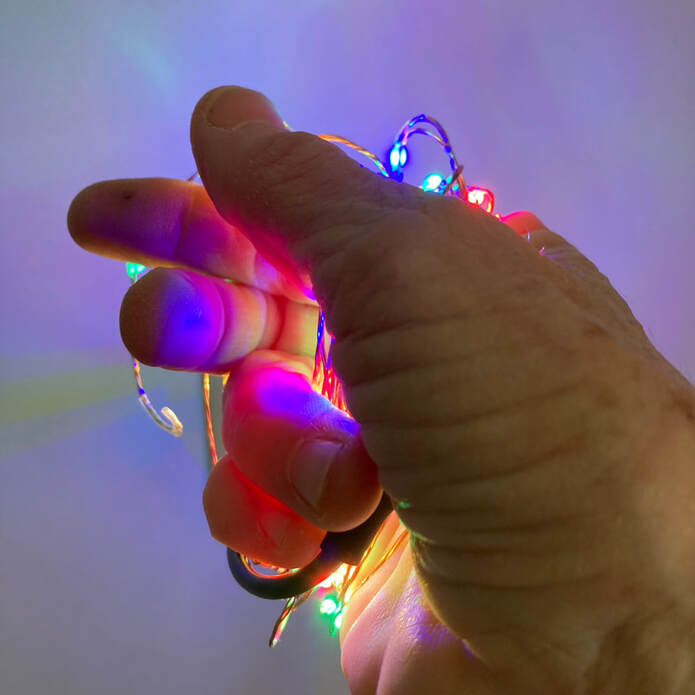
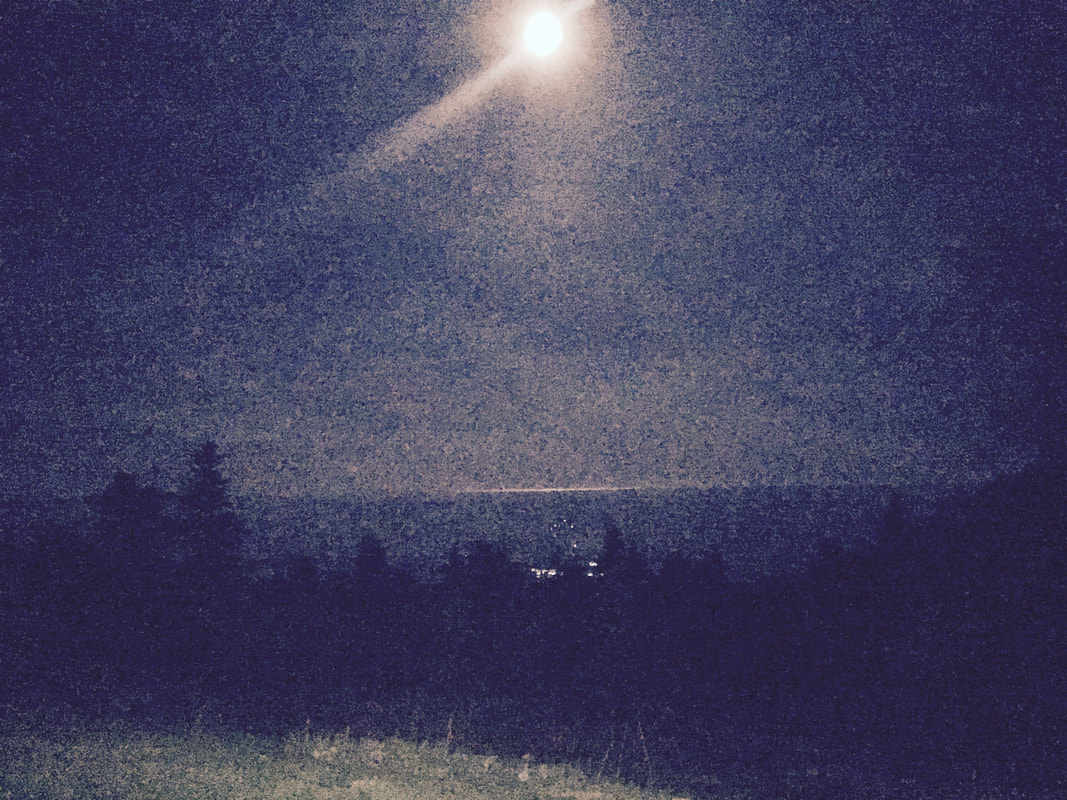
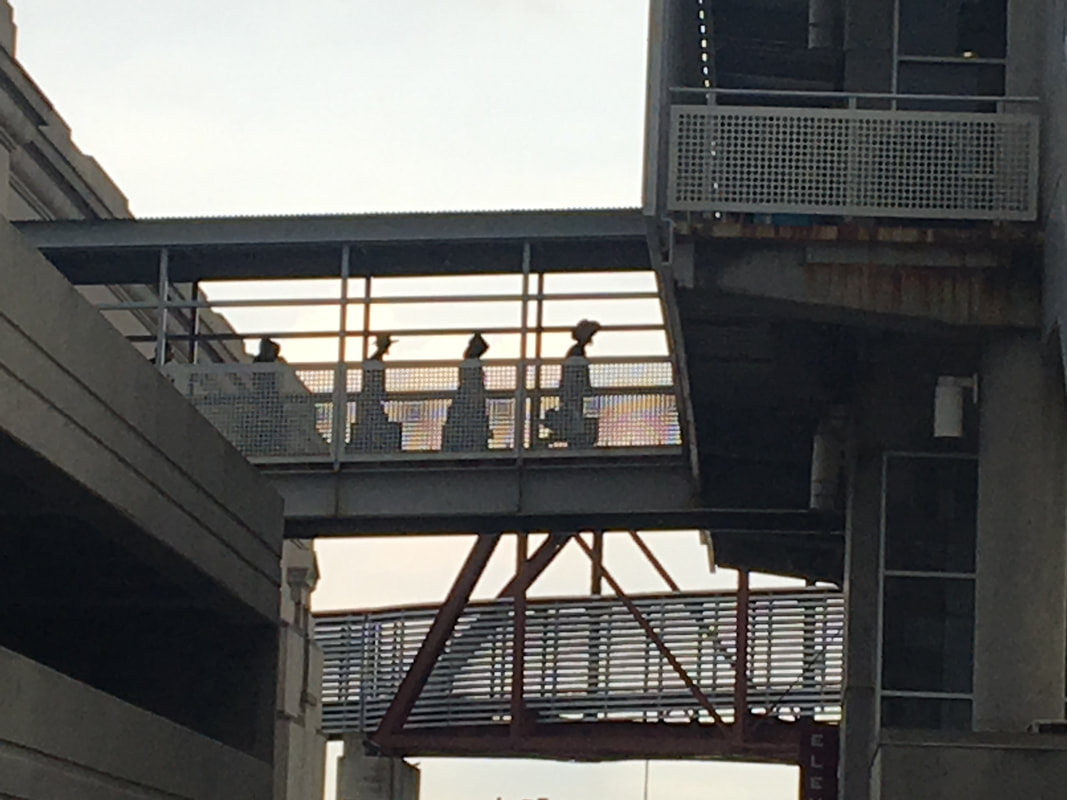
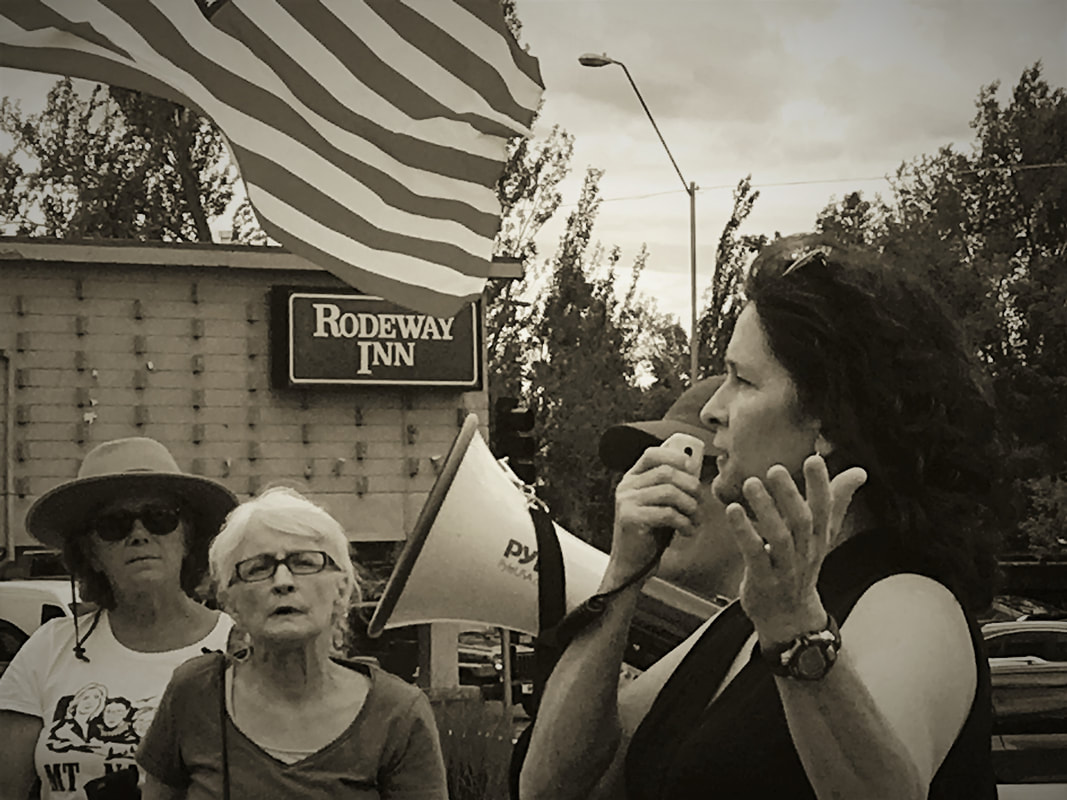
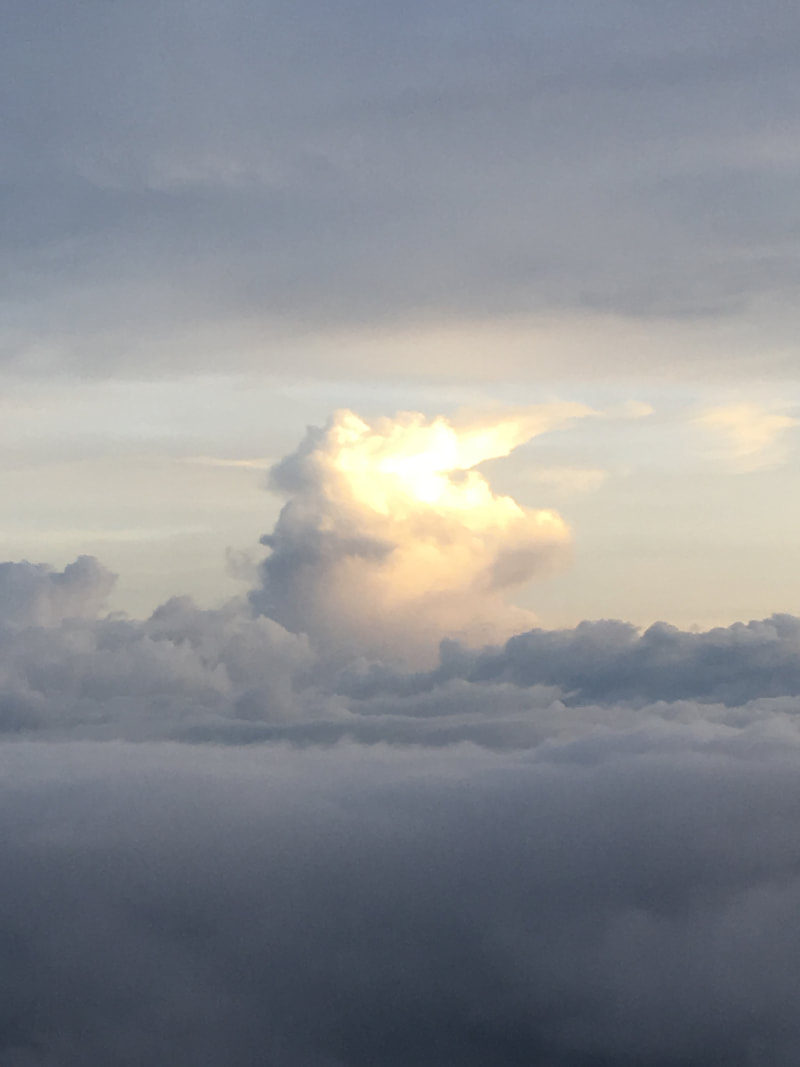
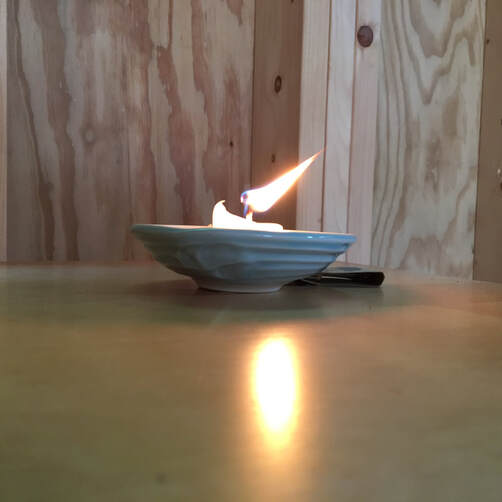
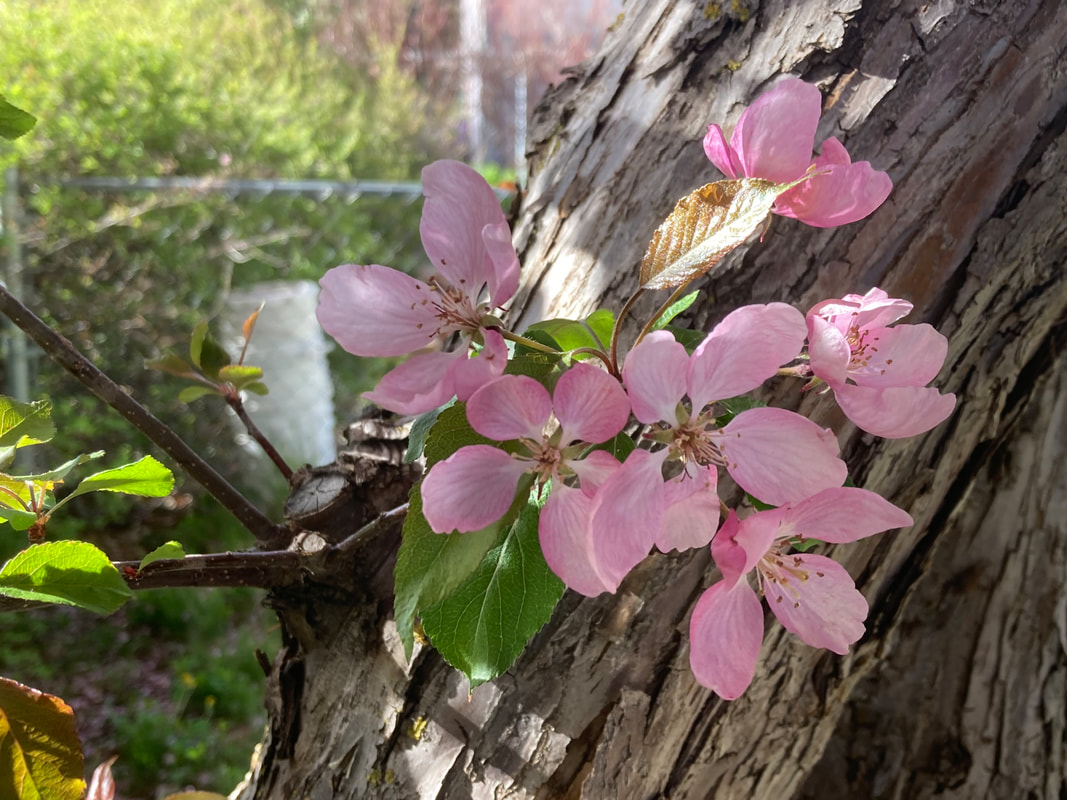
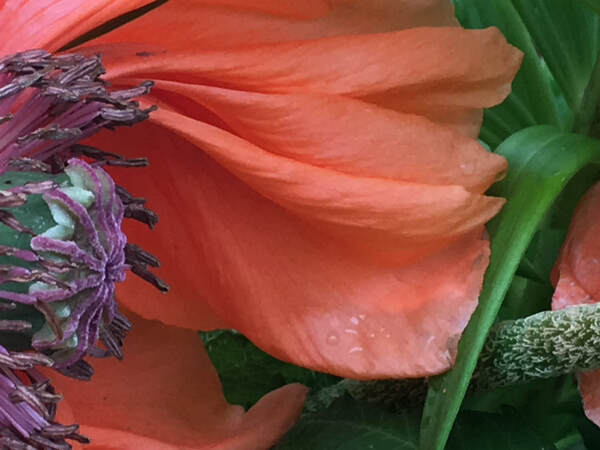
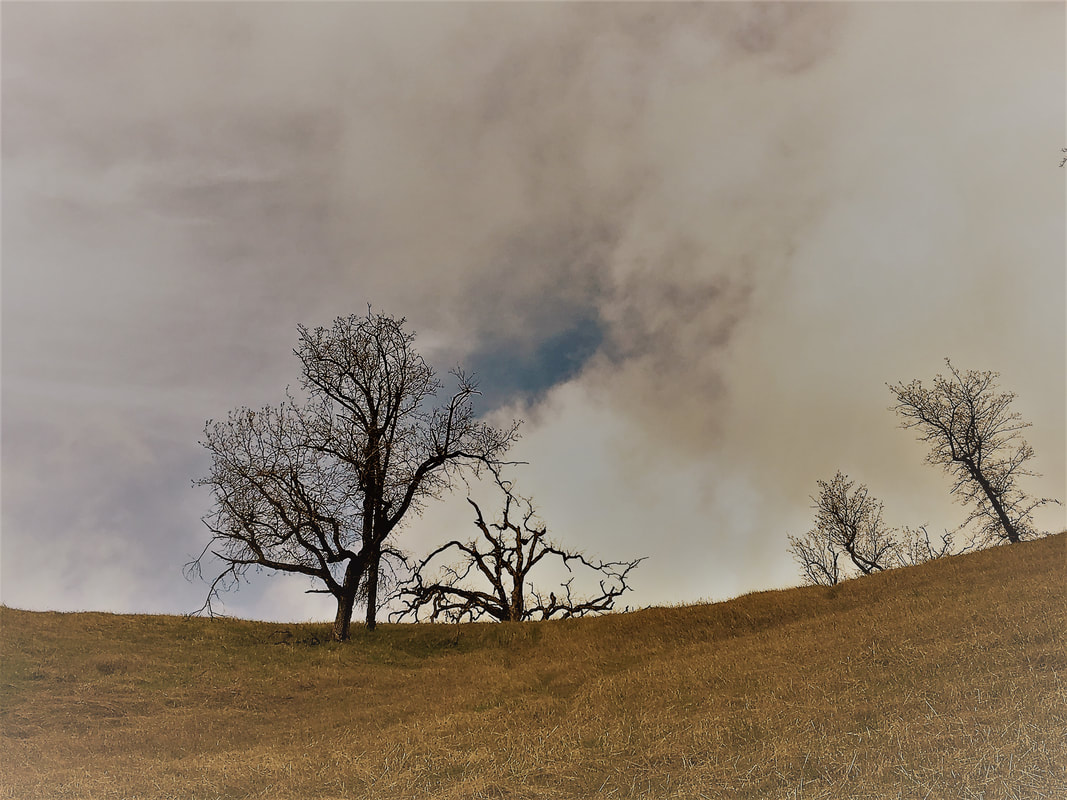
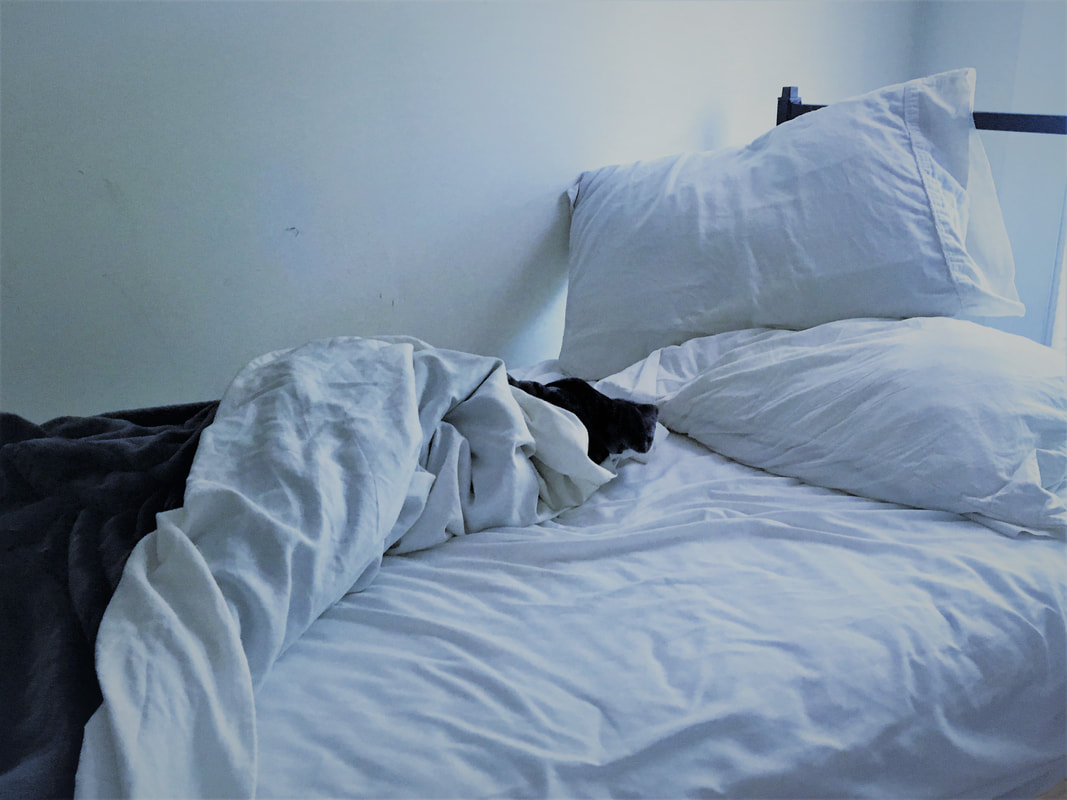
 RSS Feed
RSS Feed